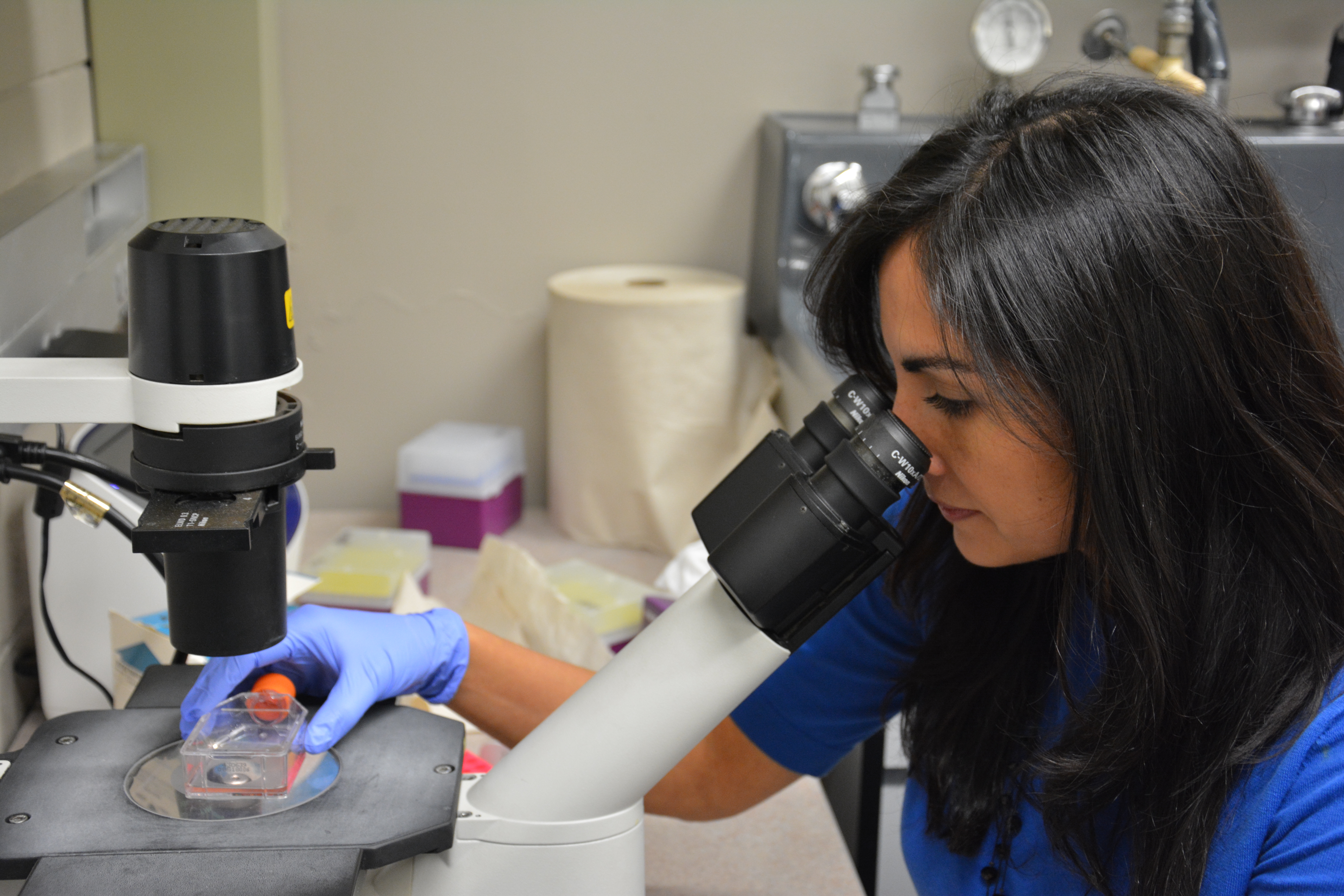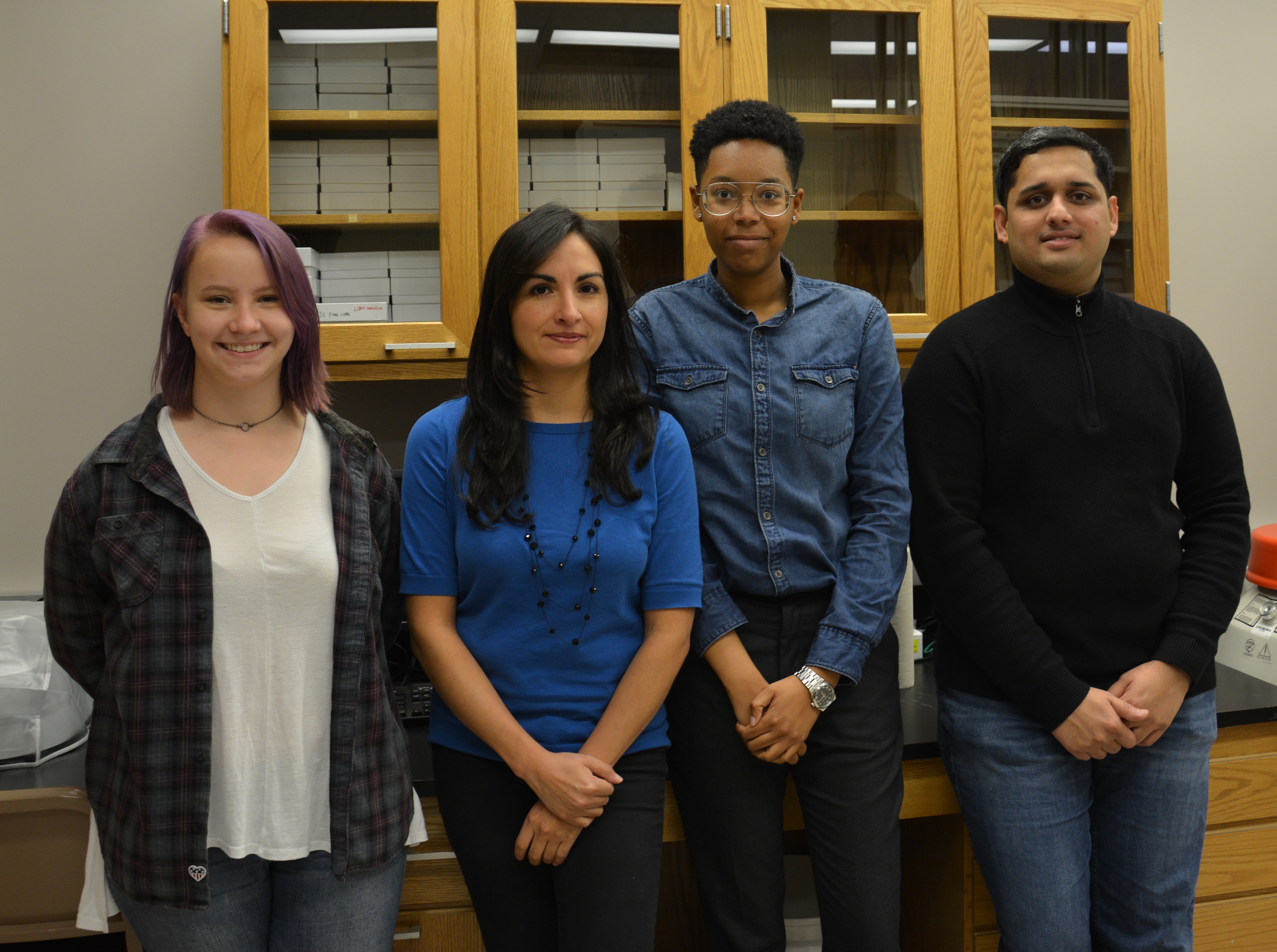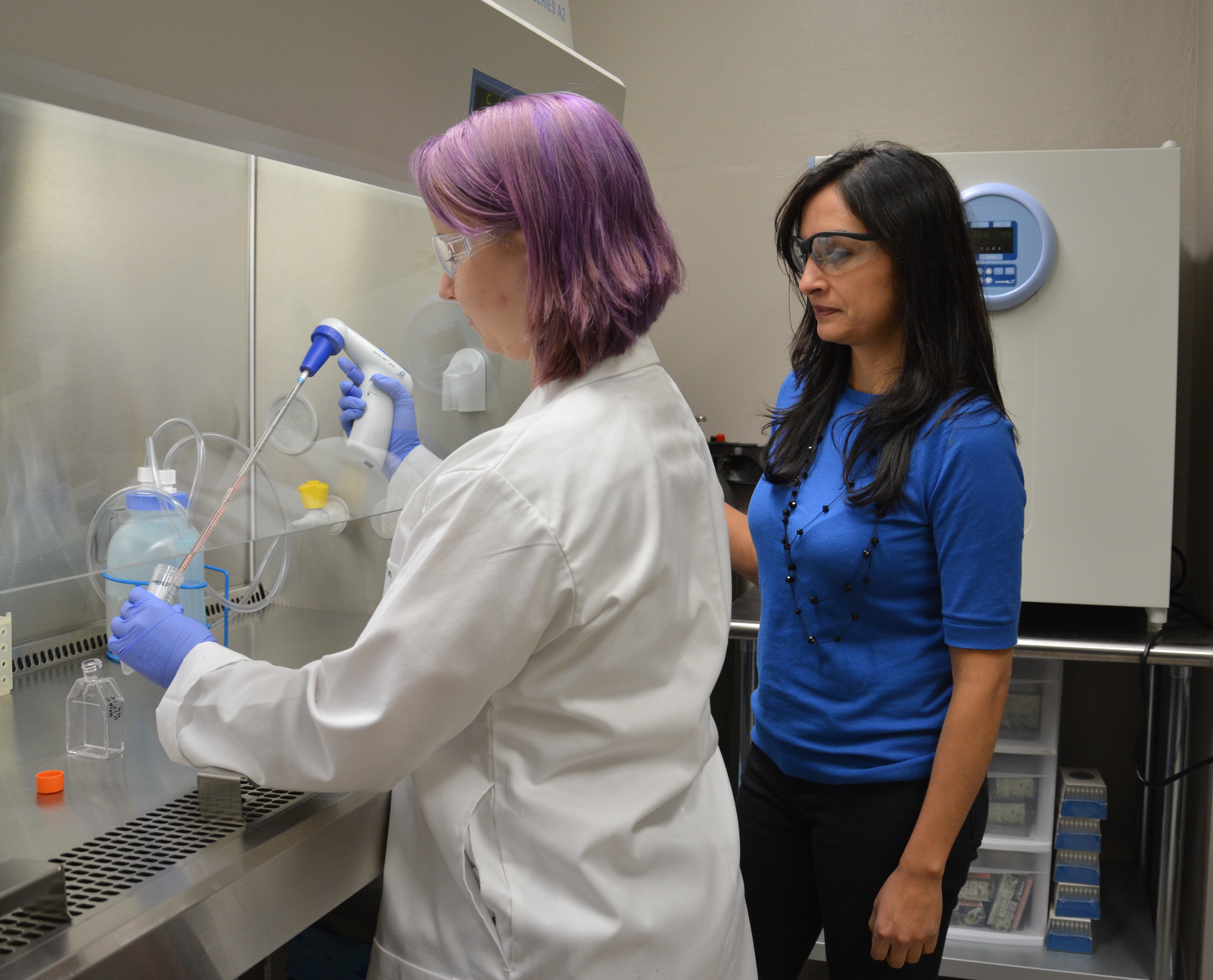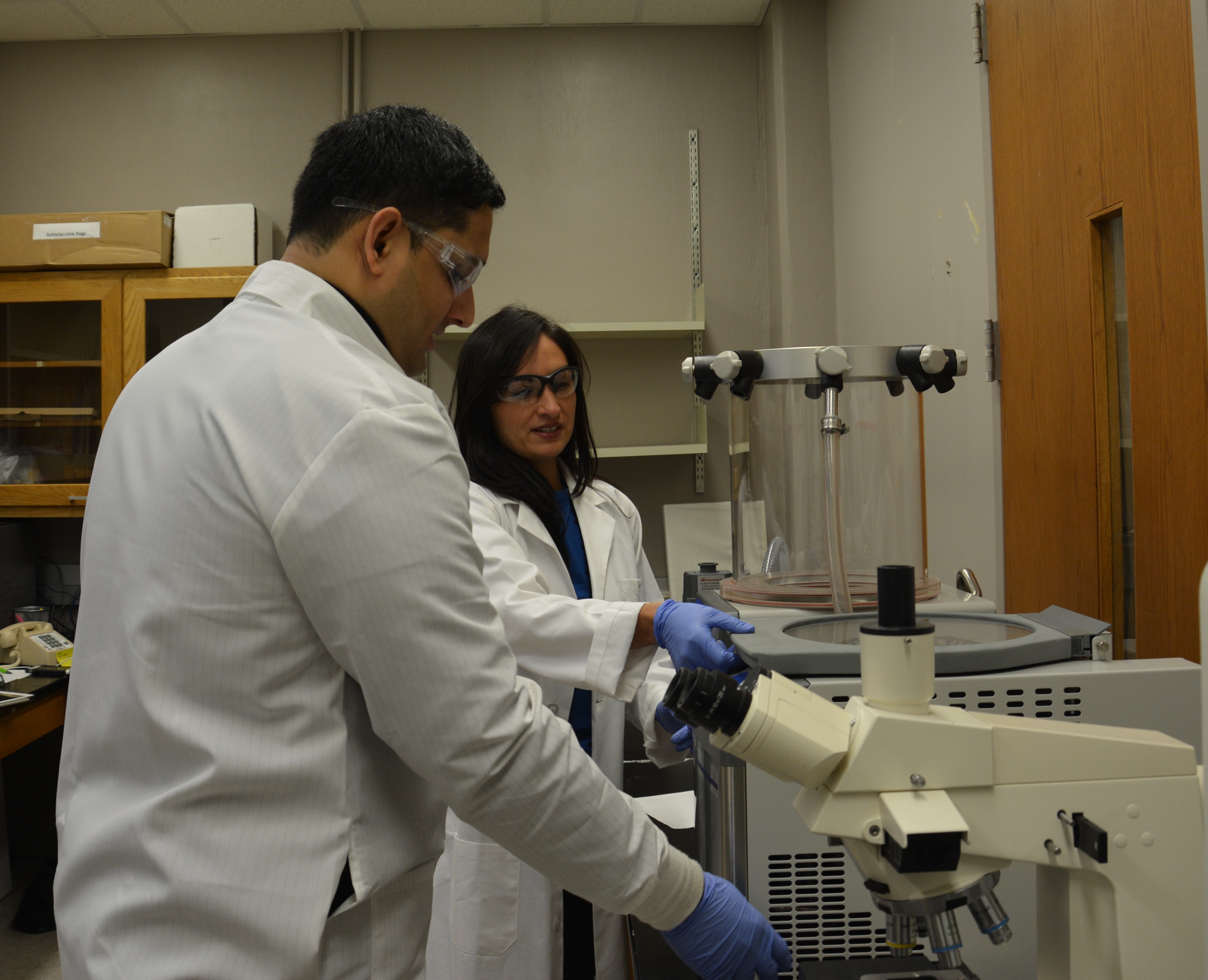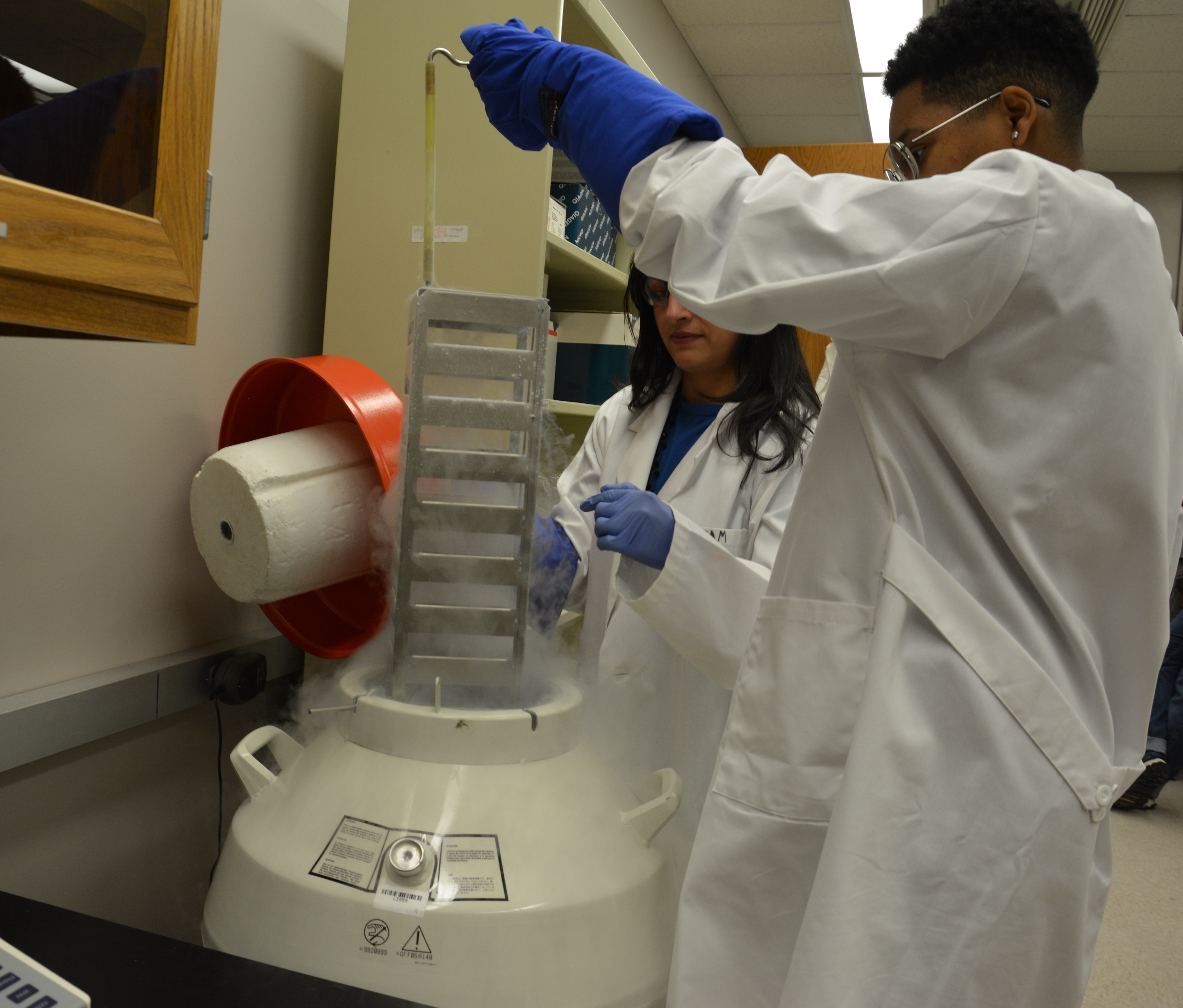COSAM News Articles 2019 January Inside COSAM Labs – Dr. Adriana Avila-Flores – Exploring Nanomaterials
Inside COSAM Labs – Dr. Adriana Avila-Flores – Exploring Nanomaterials
Dr. Adriana Avila-Flores’s lab in the Department of Biological Sciences in the College of Sciences and Mathematics (COSAM) is anything but ordinary. Between the study of nanomedicines, to the jokes between team members, and even the pet tarantula in the lab, Flores’s lab is exciting and full of energy.
Dr. Flores’s main area of research is in the creation of nanomaterials that help drugs cross the cell membranes.
“Cell membranes are difficult to permeate,” Flores explains, “but nanomaterials can increase their permeability and facilitate the entrance of therapeutic drugs.”
Not only these nanomaterials increase cell penetrability, but they also protect the drugs against degradation, allowing with this to increase their circulation half-life time. Dr. Flores is working specifically with peptide “nanovesicles”. These nanovesicles facilitate the delivery of DNA, mRNA, and dsRNA that can be used as therapeutic drugs to prevent and treat a variety of diseases.
Dr. Flores’s groundbreaking work with nanomaterials isn’t the only thing that makes her lab so unique. The connection between Flores and her students creates a close-knit environment that is evident when you step into the lab.
Each student has a specific role in the research, because it is a team effort. Sydney Bell, the lab technician, makes sure everyone has what he or she needs. She keeps the lab organized and she is in charge of keeping cell lines and animals alive. Nitish Kunte, a Ph.D student, studies how small nanovesicles called BAPCs can improve the delivery of mRNA cancer vaccines. Erin McGraw, a senior undergraduate student in COSAM, works on modifying the chemistry of different nanomaterials in order to improve DNA and mRNA delivery. By altering biophysical and categorical properties, such as size, shape, structure and charge, Erin is able to improve the nanomaterials function. Samuel Yarbrough, also a senior undergraduate student, investigates how BAPCs are being internalized and processed by cells.
Flores chose the nanotechnology field of research because she liked how something so small, such as a nanoparticle, can do so much. Being able to characterize and manipulate nanoparticles is just one reason that Flores enjoys her field.
“Enhancing the function of drugs and medicine has a direct application to human health,” Flores explains.
Dr. Flores says that having a passion for science is a key element for students interested in research. According to Flores, “finding what research triggers your passion” sets you up for success.
Latest Headlines
-
07/09/2024
-
Summer Bridge Program celebrates 21 incoming Auburn students as they prepare for future STEM careers07/02/2024
-
07/02/2024
-
06/17/2024
-
06/07/2024

